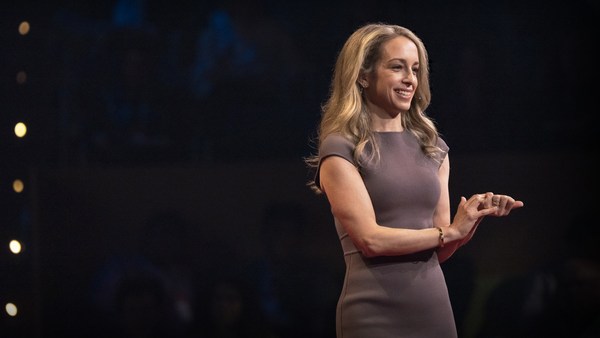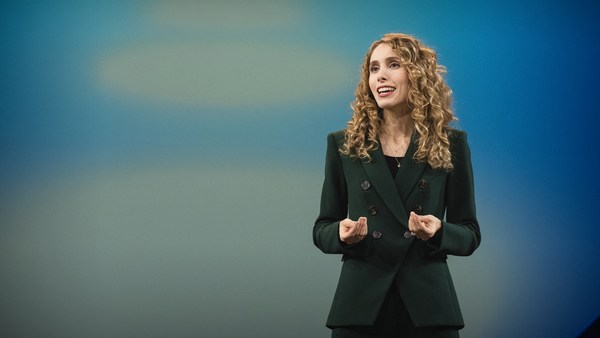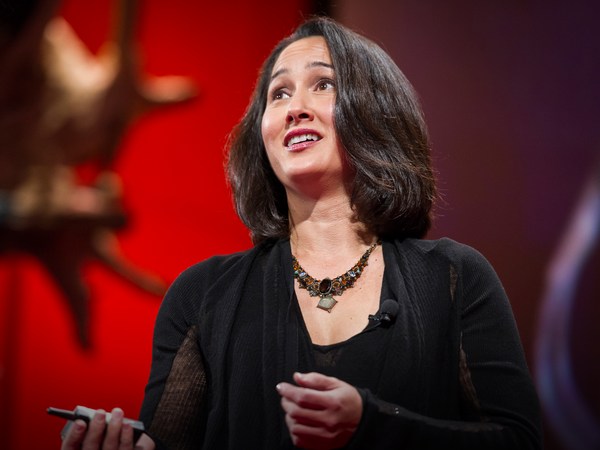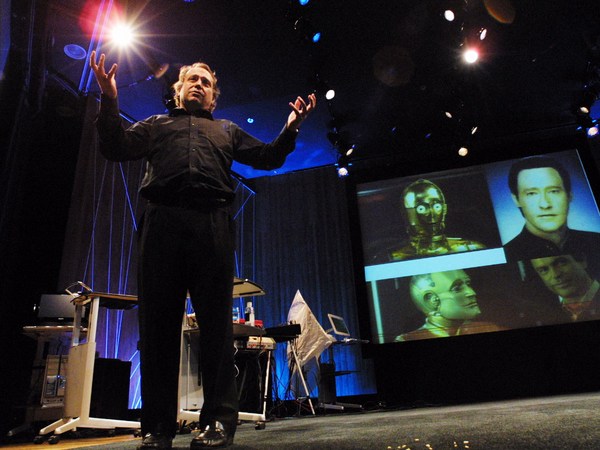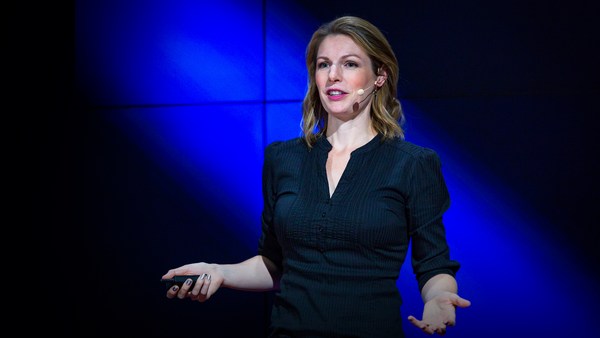I guess you've already figured out. Like it or not, artificial intelligence is going to change the nature of human work. But will it change human nature? That's going to depend on what we do with it.
Right away, the mother and the grandmother in me wants to know, oh, hey, can we program robots to help us care for our sleep-depriving, time-consuming babies?
That's before the evolutionary anthropologist in me cautions, oh, shouldn't we first ask why such costly, costly, slow-maturing babies evolved in the first place?
For that, we need to go back, oh, six million years to when humans last shared a common ancestor with other apes. Babies back then, like this common chimpanzee baby today, would have to be held in skin-to-skin contact. Never out of touch, not for a minute of the day or night, for months after birth. Nursed for years.
It just seemed natural to assume that among the bipedal apes in the line leading to the genus Homo, babies could similarly expect single-mindedly dedicated maternal care. Until, that is, anthropologists figured out how hard it would have been for bipedal apes with only Stone Age tools to survive and escape extinction in the face of climate change and other Pleistocene perils.
To stay fed and manage to still rear their helpless, helpless, slow-maturing babies, mothers needed help. Unless male and female group members other than the mother, allomothers, had helped to care for and provision babies there is no way we humans could have evolved.
Fortunately for us, as brains were getting bigger and distinctively human prefrontal cortices were taking shape, our ancestors were increasingly sharing food and sharing care of children. Neural circuits, crucial for mutual understanding, co-evolved right along with shared care.
Fast forward to the ever faster-changing modern world, mothers still labor to help support their families, as mothers always have. But many no longer live in mutually supportive communities. With kin far away and even with dads helping more, allomothers were in short supply. Good daycare, even if available, unaffordable.
No wonder parents everywhere use devices to keep their babies monitored and entertained. Already, 40 percent of US two-year-olds have their own tablets. Soon, robots will be programmed to provide a wider range of services, ranging from bottle feeding to keeping babies safe, warm, cleaned and even educated.
But given the role of engagement with others in the emergence of mutual understanding, is this a good idea?
Think back to our hunter-gatherer ancestors still living and rearing children as people in this iconic photograph, taken about half a century ago among African foragers. Babies then, to stay safe, still needed to be held by somebody, but that somebody did not have to be their mother. Right after birth, others might reach for the baby. This mother, who has just given birth, allows others to gather round. She's passed her baby to her own mother to massage its scalp. If one of these allomothers happens to be nursing, the baby's first sweet taste of milk will come from her.
Soon, babies will be monitoring nearby others, deciding who responds, figuring out how best to engage and appeal to them. By six months, the sharp little milk teeth are peeking through their gums. Their appeals might be rewarded with kiss-fed treats, maybe honey-sweetened saliva or premasticated meat, and babies soon are learning to reciprocate, starting to share. Babies everywhere will just spontaneously offer food to somebody else. Anybody, really.
Active agents in their own survival, babies are flexible about who or what they attach or consider as family. Something to keep in mind if robots are programmed to respond even more rapidly and reliably than preoccupied parents do.
And as they get older, they will spontaneously point to things or hold something out, as if saying, “What do you think of this? What should I think of this?” Eager to engage with other minds and learn what they're thinking. They care, they care very much who notices them do something nice, like a toddler rushing to pick up something someone has dropped and hand it back. They care, not just what others think, but what others think about them. Their reputations.
As developmental psychologists were learning just how other-regarding human babies are, neuroscientists using new baby-friendly technologies made a surprising discovery. With a soft-wired cap slipped on the baby's head, neural activity was detected in the medial prefrontal cortex long before most neuroscientists even assumed it was active yet. As babies process, eye gaze, actions, deciding who to trust, emulate and love.
Little humans process their physical world in much the same way other apes do. Nothing much different there. It's in these social realms where they really differ.
Intersubjective sensibilities starting to emerge early in life, right along with targeted social smiles. Brain circuitry that evolved to help babies elicit care and survive prepared our ancestors to mature into adults able to communicate and cooperate in new ways, whether constructing shelters or processing and sharing food, or eventually, one day, collaborating with widely dispersed others in order to send robots to Mars.
Tens of thousands of years from now, assuming Homo sapiens aiensis is still around, whether on this planet or some other, I have no doubt that they will be bipedal, symbol-generating apes, technologically proficient in ways we can't even dream of yet. But will they still be human in the way we think of humans today? Interested in the thoughts and emotions of others, eligible for mutual understanding. That's going to depend on how, by whom, or what they are reared.
Thank you.
(Applause)
